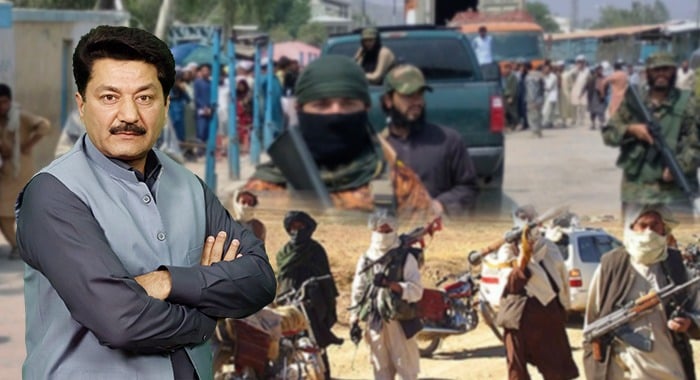Fida Adeel
In a statement that has reignited long-standing concerns, the Pakistani Taliban’s (TTP) leader Mufti Noor Wali Mehsud declared that TTP is a branch of Amarat-e-Islami, the Islamic Emirate of Afghanistan. Coming at a time when Pakistan-Afghanistan relations appeared to be improving after high-level diplomacy, the remarks have cast a shadow over regional peace and re-raised the critical question: is TTP genuinely operating under the ideological and operational umbrella of the Afghan Taliban?
This is not merely a rhetorical provocation; it is a direct challenge to the Afghan Taliban regime, which governs Afghanistan under the banner of Amarat-e-Islami Afghanistan and claims to pursue peaceful relations with neighboring countries. While Field Marshal Asim Munir has reiterated Pakistan’s respect for Afghanistan as a brotherly Islamic nation, he has simultaneously warned that Afghan soil is being persistently used for orchestrating terror attacks against Pakistan.
Senior journalists and defense analysts familiar with the inner dynamics of both TTP and TTA (Tehrik-e-Taliban Afghanistan) argue that the two groups are, in essence, two faces of the same coin. Both factions reportedly pledge allegiance to Sheikh Hibatullah Akhundzada and continue to share ideological, tribal, and logistical networks. Pakistan has repeatedly conveyed to Kabul that the sanctuary and operational freedom enjoyed by TTP militants in Afghan provinces is a serious threat to regional peace and bilateral trust.
Despite Pakistan’s consistent pressure and diplomatic overtures, the issue remains unresolved. On April 19, Deputy Prime Minister and Foreign Minister Ishaq Dar visited Kabul and held positive meetings with the Afghan leadership. Yet, just three days later, on April 22, a riot broke out, followed by a string of targeted killings and suicide attacks in Pakistan’s Khyber Pakhtunkhwa and Balochistan provinces. These incidents, many linked to TTP and Daesh Khorasan, indicate an unsettling escalation.
India’s attempts to influence Kabul and co-opt Iran into its regional calculus further complicate the equation. Meanwhile, China has stood firmly by Pakistan, reaffirming support through the trilateral Pakistan-Afghanistan-China talks in Beijing and proposing the inclusion of Afghanistan in the China-Pakistan Economic Corridor (CPEC). Islamabad recognizes that land access to Central Asia through Afghanistan is crucial, and thus remains invested in Afghan stability.
However, this diplomatic balancing act is undermined when Afghan soil continues to host anti-Pakistan militant leadership. The emergence of new militant alliances, including one formed by Hafiz Gul Bahadur, also allegedly operating from Afghanistan, points to a deepening security dilemma. Pakistani officials maintain that both Bahadur and Noor Wali Mehsud remain at large across the border, planning cross-border attacks with impunity.
The government’s response has included hard decisions. Following Field Marshal Asim Munir’s assertion of national security risks, Pakistan moved to repatriate undocumented Afghans. The deadline for ACC and illegal immigrants expired on June 30, and while some flexibility was offered for POR (Proof of Registration) cardholders—1.4 million Afghan refugees registered with NADRA—a final decision is pending before the federal cabinet. The Ministry of States and Frontier Regions has reportedly recommended an extension of three to six months, reflecting Islamabad’s attempt to balance security concerns with humanitarian responsibility.
The Afghan Taliban’s internal contradictions are also coming into sharper focus. Kabul Police Academy chief Syedullah Syed recently warned that Afghans engaging in violence beyond Afghan borders cannot claim religious legitimacy, an indirect yet clear message to the TTP. While such statements are significant, the Afghan Taliban’s refusal to dismantle TTP’s sanctuaries or restrict their movement speaks louder.
Pakistan has made it clear: it does not demand that the Afghan Taliban kill or extradite Pakistani militants. Rather, it expects that those groups be disarmed, immobilized, and prevented from attacking Pakistani territory. The previous special envoy to Afghanistan, Mohammad Sadiq Khan, emphasized this in Islamabad, noting that Pakistan simply seeks non-aggression.
Efforts were even made to resettle some 2,000 TTP-affiliated families, originally from Waziristan, into central Afghan provinces like Ghazni. However, inadequate living conditions forced many of these families to return to their original areas in eastern Afghanistan, close to the Pakistan border—making them a continuing security concern.
The recent spate of attacks—including the targeted killing of traffic police in Lakki Marwat and religious figures in Bajaur, Peshawar, and Mardan—illustrates the severity of the crisis. Whether it’s uniformed personnel or scholars, militants now seem to be targeting all symbols of state authority and religious moderation. The resurgence of such attacks—often claimed by TTP or Daesh Khorasan suggests a coordinated campaign to destabilize Pakistan from within.
The Pakistani state, despite economic and geopolitical pressures, cannot afford ambiguity. While it is open to dialogue and extending humanitarian gestures toward Afghan refugees, it must remain clear-eyed about threats emanating from across the border. The stakes are high—not just for regional peace but for Pakistan’s internal cohesion.
In conclusion, Mufti Noor Wali Mehsud’s statement may not have surprised Pakistani analysts, but it has exposed a major dilemma for the Afghan Taliban. If TTP is indeed a branch of Amarat-e-Islami, then Kabul can no longer maintain plausible deniability. The world, and especially regional powers like China, are watching closely. Any further erosion of trust between Pakistan and Afghanistan could derail not just bilateral relations but the wider vision for economic connectivity and peace in South and Central Asia.





